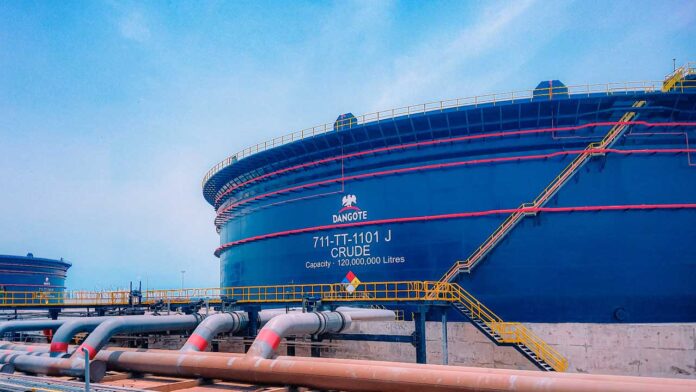Dangote begins fuel exports to Saudi Arabia, boosts capacity to 550,000bpd
Two cargoes of jet fuel, each averaging around 130 million litres, have been exported from Nigeria to Saudi Arabia by the Dangote Petroleum Refinery.
This comes in the wake of predictions by the Organisation of Petroleum Exporting Countries (OPEC) that the 650,000 barrel-per-day refinery could disrupt both global crude and product markets.
Aliko Dangote, President of the Dangote Group, hailed the latest export as a key achievement in fulfilling the goals set by the organization.
This development signals that Nigeria might focus more on the Middle East as part of its strategy to become a refining hub, especially with refineries in the global north facing shutdowns.
In December last year, the Nigerian National Petroleum Company Limited (NNPCL) announced the sale of the first cargo of Port Harcourt Low Sulphur Straight Run (LSSR) fuel oil to Dubai-based Gulf Transport and Trading Limited (GTT). The cargo was shipped aboard the Wonder Star MR1.
Dangote, in a statement following a visit by the Nigerian Economic Summit Group (NESG) to both Dangote Fertiliser Limited and the Dangote Petroleum Refinery and Petrochemicals in Ibeju Lekki, Lagos, mentioned that the refinery’s output currently stands at 550,000 barrels per day (bpd).
“We are achieving the ambitious goals we set for ourselves, and I am pleased to announce that we’ve just sold two cargoes of jet fuel to Saudi Aramco,” Dangote said.
He underscored the critical role of the private sector in national development, noting that Nigeria’s challenges could be largely addressed through job creation. Dangote also emphasized that the free-market concept should not perpetuate import dependence, highlighting that both developed and developing nations—such as the United States and China—protect their domestic industries to safeguard jobs and promote self-sufficiency.
He cited Benin Republic, where cement imports were restricted to support local industries, despite the proximity of his Ibese plant. “The President is a personal friend, and my Ibese plant is just 28km from Benin, yet they refuse to allow imports to protect their local industries, most of which are grinding plants,” he explained.
Dangote further pointed out that the Nigerian government stands to benefit significantly when the private sector thrives, noting that 52 kobo (52%) of every naira Dangote Cement earns goes to the government.
He also discussed the immense challenges of setting up industries in Nigeria, especially due to the lack of infrastructure and the heavy capital investment required.
Niyi Yusuf, Chairman of the Nigerian Economic Summit Group, commended Dangote for establishing the refinery and emphasized that Nigeria needed large-scale investments to reach its $1 trillion economy target.
“To achieve a $1 trillion economy, a significant portion of that must come from domestic investments. I joked during the bus ride that while others are dredging to create islands for leisure, you’ve dredged 65 million cubic tonnes of sand to create a future for the country. This refinery, fertiliser plant, petrochemical complex, and supporting infrastructure are monumental,” he said.
Yusuf highlighted that such local industries are vital for Nigeria’s industrialisation and will help stimulate the growth of Small and Medium-sized Enterprises (SMEs).
Follow the Neptune Prime channel on WhatsApp:
Do you have breaking news, interview request, opinion, suggestion, or want your event covered? Email us at neptuneprime2233@gmail.com





